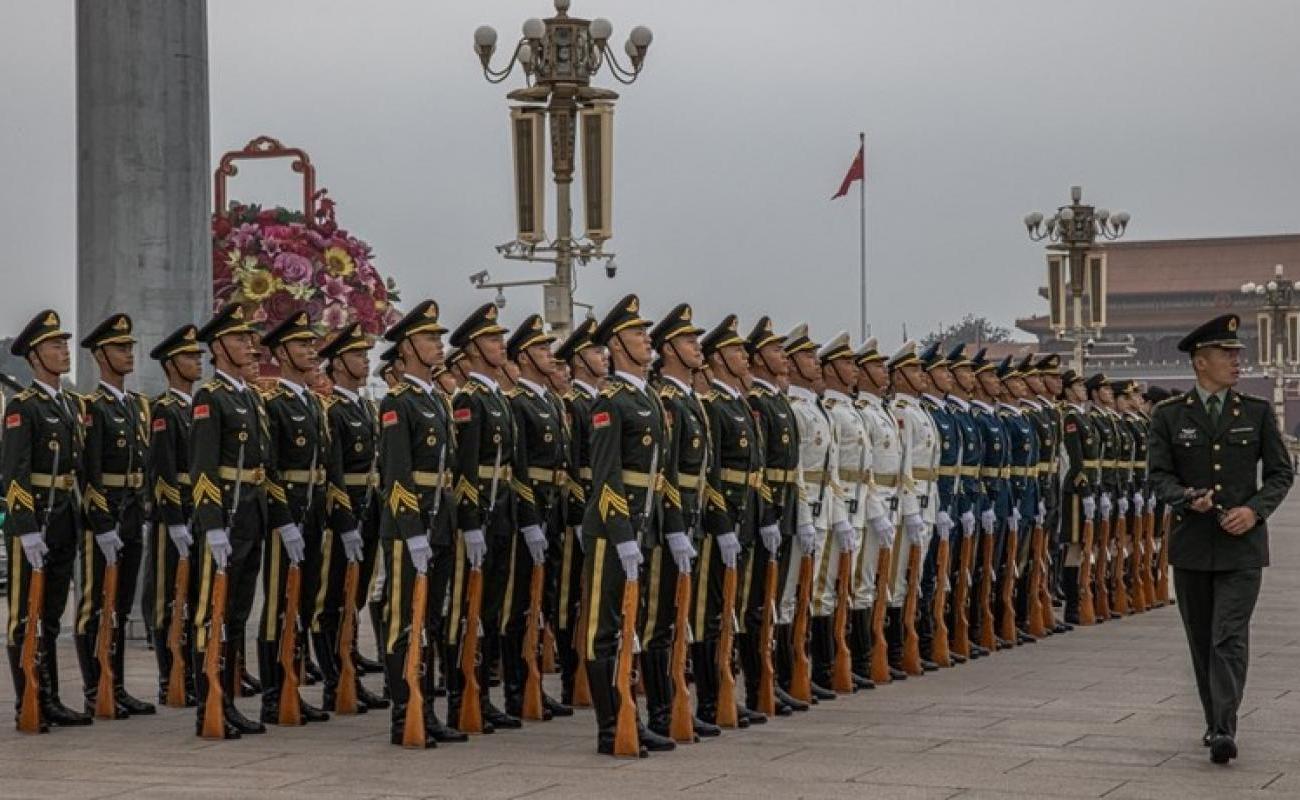Chinese companies are establishing their own armies. What is happening?

CHINESE companies are doing something rarely seen since the 1970s: they are establishing their own volunteer armies. At least 16 major Chinese companies, including a privately held dairy giant, have formed their own fighting forces over the past year, a CNN analysis shows.
These units, known as Departments of the People's Armed Forces, are made up of civilians who remain at their daily jobs. They act as reserve and auxiliary forces for China's military, the world's largest armed force, and are available for missions ranging from responding to natural disasters and helping to maintain "social order" to providing support during wartime.
The forces currently not operating outside of China have more in common with the US National Guard than with militias and private paramilitary organizations that tend to have a right-wing political focus. The establishment of the corporate brigades underscores Beijing's growing concern about potential conflicts abroad as well as social unrest at home as the economy falters, analysts say.
Preparation for war, social unrest or a new pandemic?
Their formation is also seen as a response to the pandemic and an effort by Chinese leader Xi Jinping to tighten the Communist Party's control over society, including the corporate sector.
"The return of corporate militias reflects Xi's growing focus on better integrating economic development with national security as the country faces slower growth and increased geopolitical competition," said Neil Thomas, China Policy Fellow at the Asia Policy Institute's Center for China Analysis.
"Military-led corporate militias could help the Communist Party more effectively quell social unrest such as consumer protests and employee strikes," Thomas told CNN.
China's economy grew by 5.2% in 2023, slightly more than the official target set by Beijing. However, the country faces a myriad of challenges, including a record slump in real estate, rising youth unemployment, deflationary pressure, mounting corporate debt and increasing financial stress on local authorities.
There are no details on the size of the force or the demographic profile of the employees who have joined the force. According to China's Military Service Law, male militia members are supposed to be between 18 and 35 years old. There is some flexibility for people with special skills. Women are also eligible to join, although age limits are not specified in the law.
In September, Shanghai Municipal Investment Group, a state-owned real estate developer, established a unit of the People's Armed Forces Department. The unit is being monitored by the Shanghai military garrison, according to Jiefang Daily, the official newspaper of the Communist Party in the city.
At least 14 other state-owned companies did the same last year, according to a CNN analysis of state media reports. Among them are Mengniu Dairy, the second largest dairy producer in China; Hai'an Urban Construction Investment and Development in Nantong City; three real estate construction companies in Huizhou City, as well as nine companies in Wuhan, the capital of Hubei Province.
At a press conference in October, a spokesman for the Ministry of Defense said that the motive for establishing militias in state-owned companies was "strengthening the development of national defense."
Militias are a key part of China's armed forces
Chinese militias date back to the founding of the People's Republic in 1949. They also existed in the 20s of the last century and supported the Communist Party in its numerous battles. After 1949, when the party took control of China, the units were finally attached to regional governments, schools and companies.
These forces flourished during the Maoist era from 1949 to 1976, peaking in the late 1950s when they had 220 million members. At that time, military tensions with the United States over Taiwan were high.
Militias are a key part of China's armed forces, which consist of two permanent professional components: the People's Liberation Army and the People's Armed Police, tasked with maintaining internal security. Militias have a role to support the military, according to China's defense law.
By including a large number of civilians in these units, said Chinese revolutionary leader Mao Tse Tung, the country's defense against the threat of "imperial powers" such as the United States of America is strengthened. But historians say Mao used the forces to promote his influence and consolidate power.
He joined the brigades in the People's Communes, huge collectives formalized in 1958 that controlled almost all economic and political activity in rural China. The communes were central to his Great Leap Forward campaign, a disastrous attempt to boost agriculture and increase steel production through collectivization that resulted in the deaths of tens of millions of people.
Although some state-owned enterprises have retained their militias, they have not existed in large private enterprises until recently, as the private sector began to re-establish itself only after 1978, when China implemented free-market reforms.
